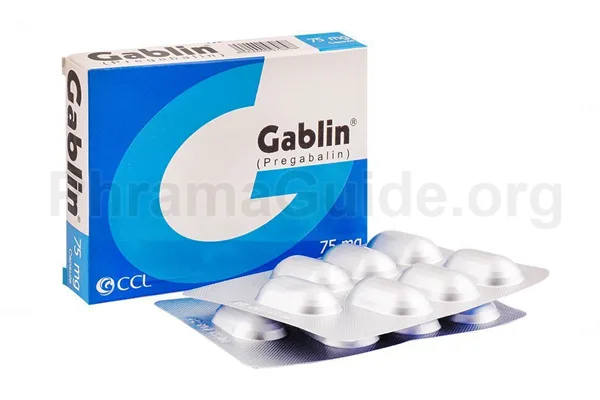Gablin, a medication used to treat conditions like neuropathic pain, fibromyalgia, and certain types of seizures, can have several common side effects. It’s important to note that not everyone experiences these side effects, and some individuals may have different reactions. Here are some common and less common side effects associated with Gablin.
Common Side Effects
- Dizziness and drowsiness: Feeling lightheaded, dizzy, or sleepy is a very common side effect. It can impair your ability to concentrate or operate machinery.
- Weight gain: Some individuals may experience weight gain while taking Gablin.
- Dry mouth: This medication might cause a dry sensation in your mouth, leading to increased thirst.
- Blurred vision: Vision disturbances or blurred vision can occur in some people taking Gablin.
- Swelling of extremities: Some individuals may notice swelling in the hands, feet, or legs.
- Fatigue and weakness: Feeling tired or weak is another common side effect of Gablin.
- Difficulty concentrating: Some people might experience difficulties with focus or memory.
- Headache: Headaches are reported by some individuals using Gablin.
- Nausea and vomiting: Gastrointestinal issues such as nausea or vomiting can occur.
- Mood changes: In some cases, individuals may experience changes in mood, including irritability or anxiety.
- Muscle pain or twitching: Muscle-related issues like pain or twitching might occur.
- Reduced libido or sexual dysfunction: Some people might experience changes in sexual desire or performance as a common side effect of Gaglin.
Less Common Side Effects
- Mood changes: While mood changes are listed as both common and less common, more severe changes in mood, such as signs of depression or suicidal thoughts, might occur in a smaller percentage of individuals.
- Allergic reactions: Rarely, Gablin can cause allergic reactions such as rash, itching, and swelling of the face, tongue, or throat, which may cause difficulty breathing.
- Abnormal bleeding: Some people may experience unusual bleeding or bruising while taking Gablin.
- Heart-related issues: In rare cases, individuals may experience changes in heart rhythm, palpitations, or other heart-related problems.
- Speech problems: Less commonly, Gablin can cause speech difficulties or slurred speech.
- Kidney problems: Rarely, Gablin might lead to changes in kidney function, which can cause difficulties in urination or changes in the amount of urine produced.
- Liver problems: Although uncommon, Gablin may affect liver function, leading to symptoms like jaundice (yellowing of the skin or eyes) or abdominal pain.
- Seizures or convulsions: In rare instances, Gablin might increase the risk of seizures in some individuals.
- Memory impairment: While difficulty concentrating or mild memory issues are more common, in some cases, Gablin can cause more significant memory impairment.

What is Gablin?
Gablin is one of the leading brands of Pregabalin, manufactured and marketed by CCL (Consolidated Chemical Laboratories) (Pvt) Ltd Pakistan.
Gablin : Available Formulations and Strengths
Presently, Gablin is available in Capsule Form with the following strengths.
Gablin Capsules : 75mg, 150mg, and 300mg strengths.
What Are The Possible Drug Interactions of Gablin?
- Central Nervous System Depressants: Combining Gablin with other drugs that have a sedative effect on the central nervous system (CNS), such as opioids, benzodiazepines, or alcohol, can increase the risk of drowsiness, dizziness, and respiratory depression. This combination can be dangerous and should be avoided or closely monitored by a healthcare provider.
- Antidiabetic Medications: Gablin might lead to an increase in blood glucose levels. Therefore, individuals taking antidiabetic medications, including insulin or oral hypoglycemic drugs, should monitor their blood sugar levels more closely when starting or changing the dose of Gablin.
- Certain Pain Medications: Drugs used for pain relief, like oxycodone or morphine, when combined with Gablin, may increase the risk of CNS depression and respiratory problems.
- Thiazolidinediones: Gablin might lead to fluid retention and edema. When combined with thiazolidinediones (drugs used to treat diabetes), this effect may be increased, potentially worsening heart failure.
- Angiotensin-Converting Enzyme (ACE) Inhibitors: Gablin may cause peripheral edema. When combined with ACE inhibitors (medications for hypertension or heart failure), the risk of edema might increase.
- Herbal Supplements and Other Medications: Always inform your healthcare provider about all medications, including over-the-counter drugs, herbal supplements, and vitamins, as they can interact with Gablin, either intensifying its effects or causing adverse reactions.

Leave A Comment